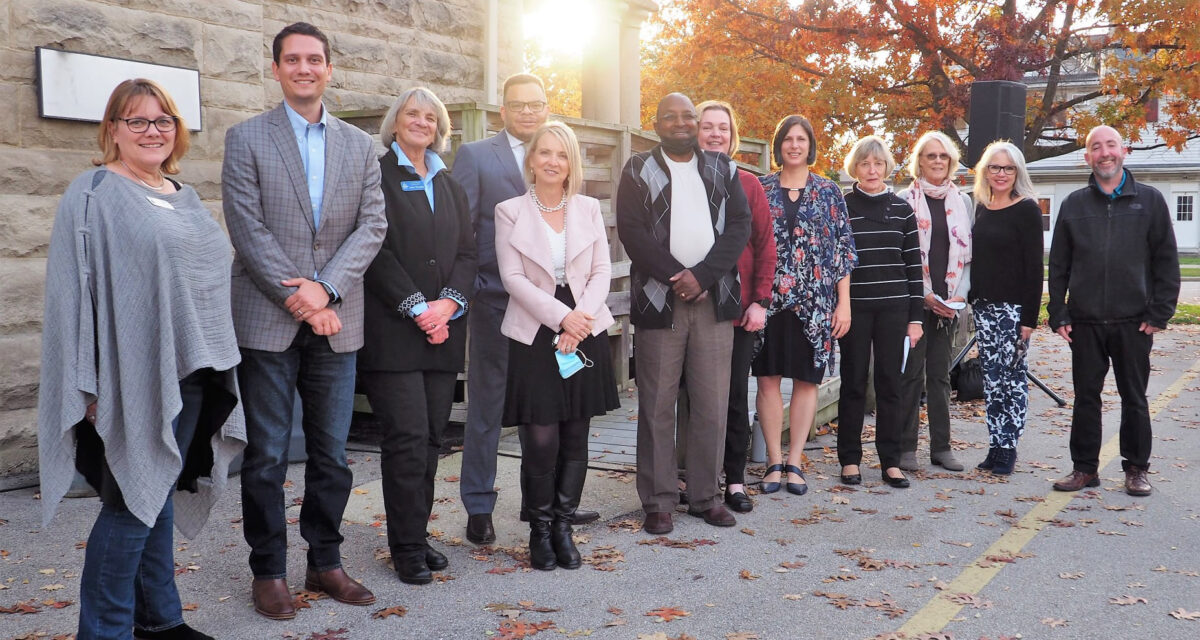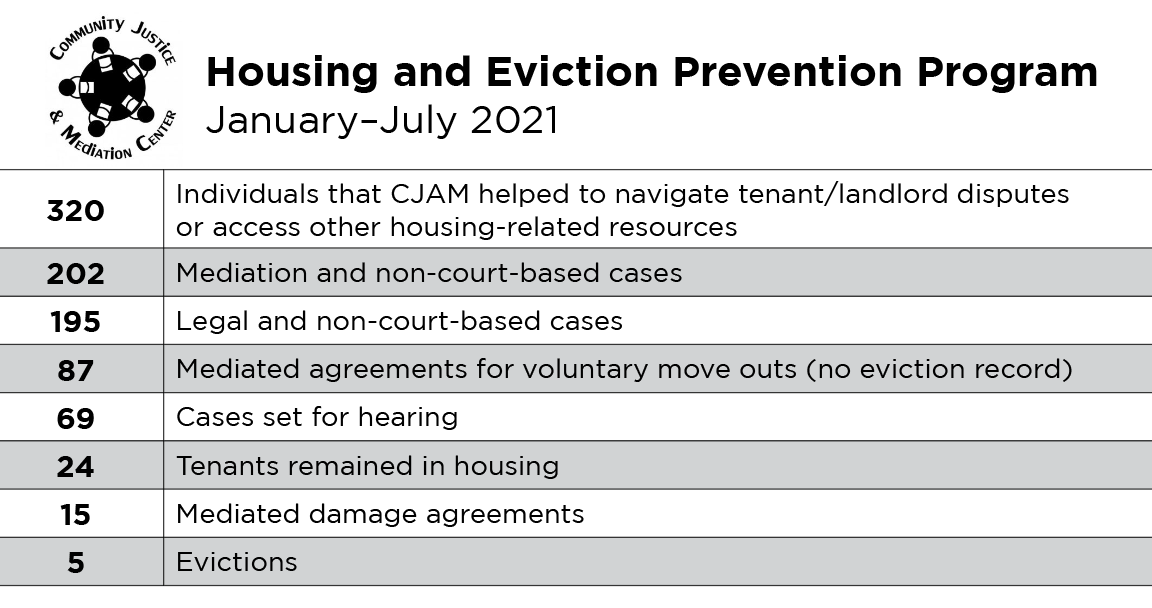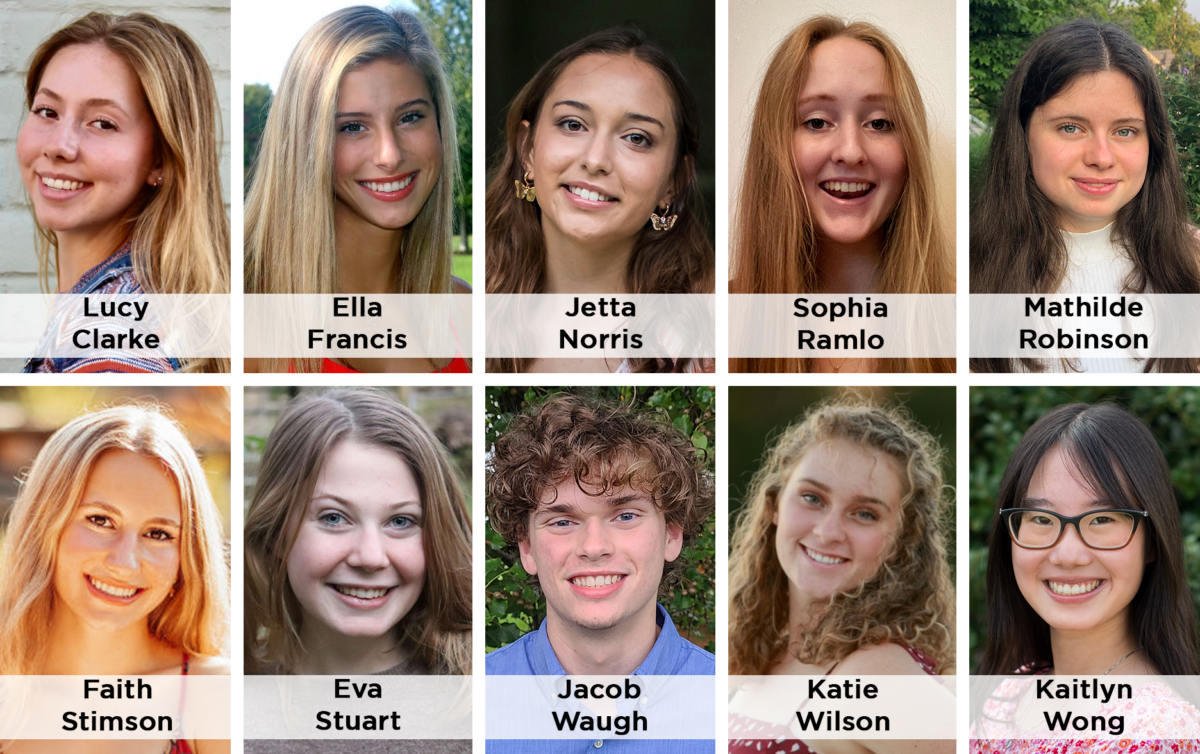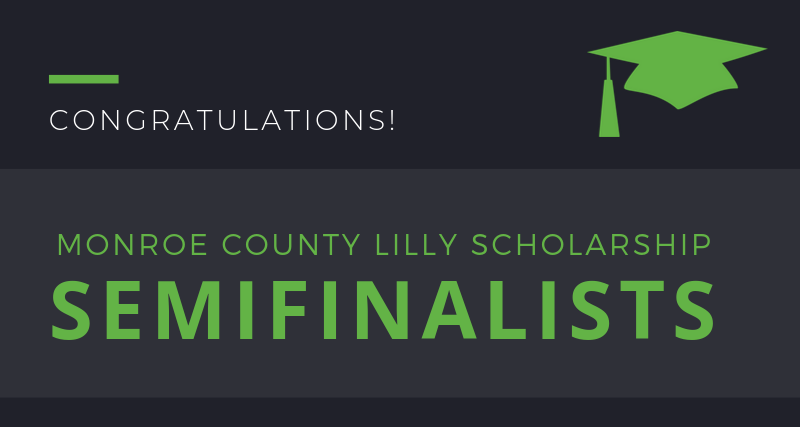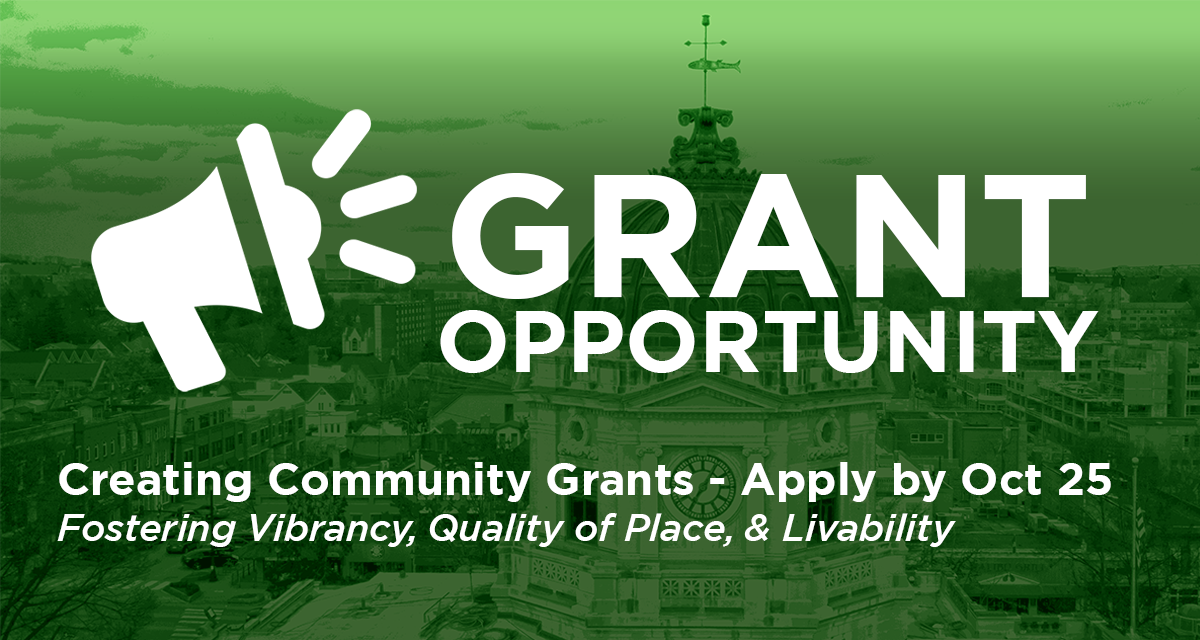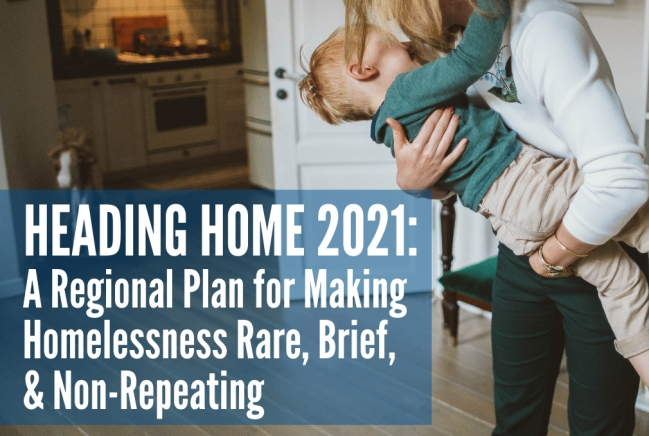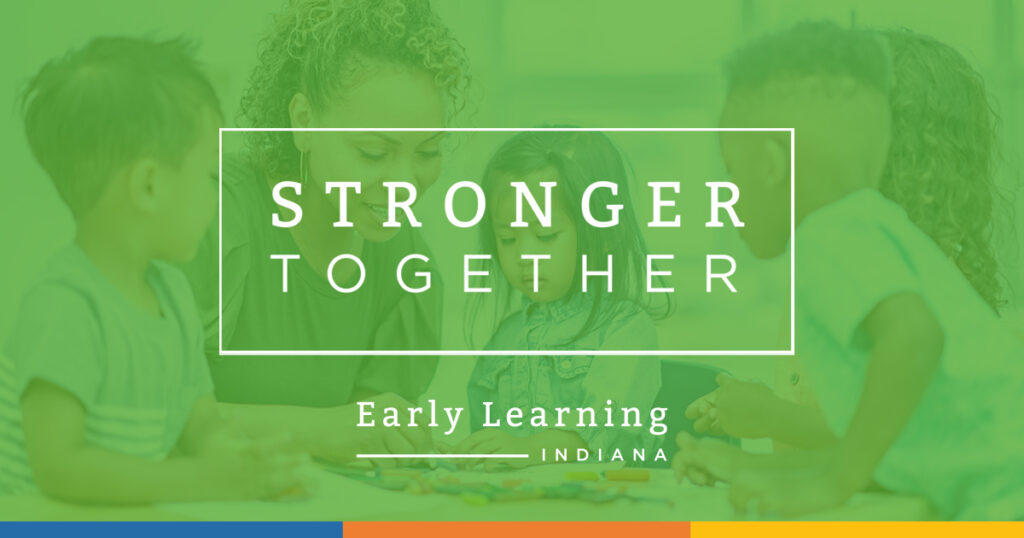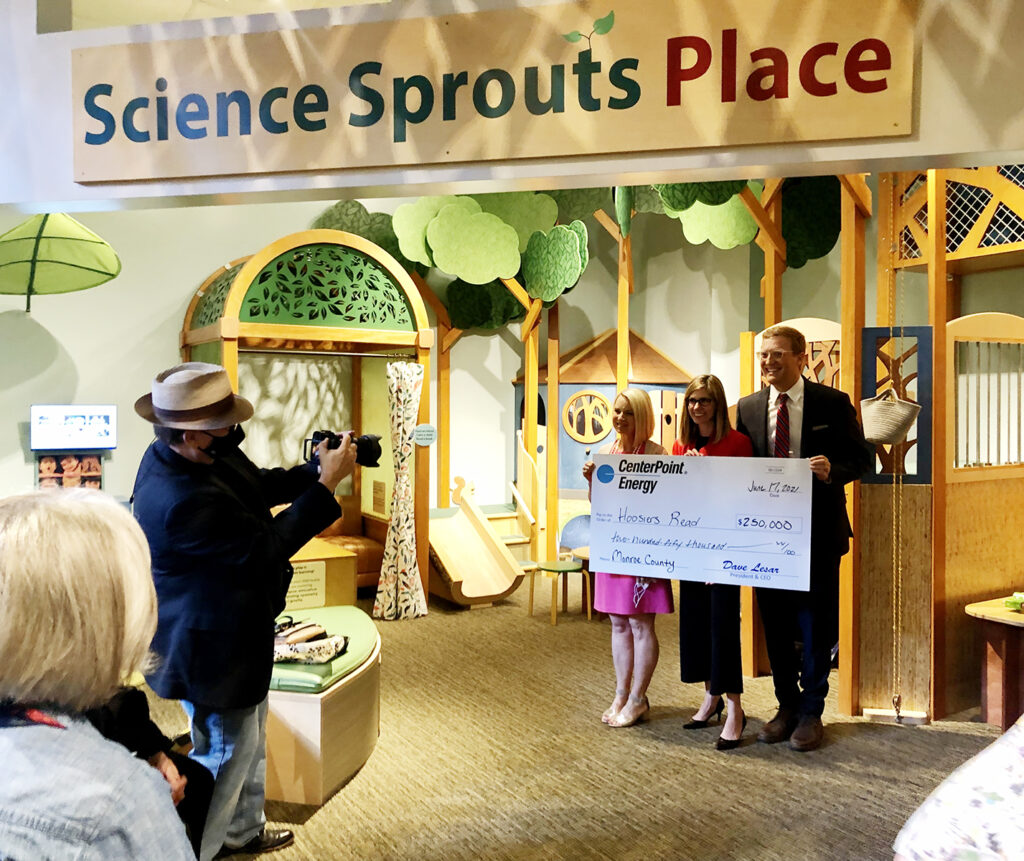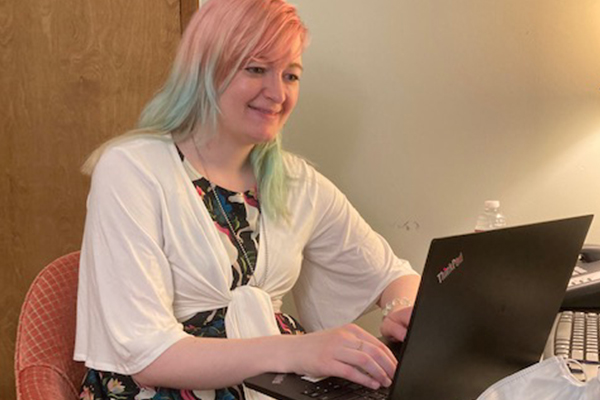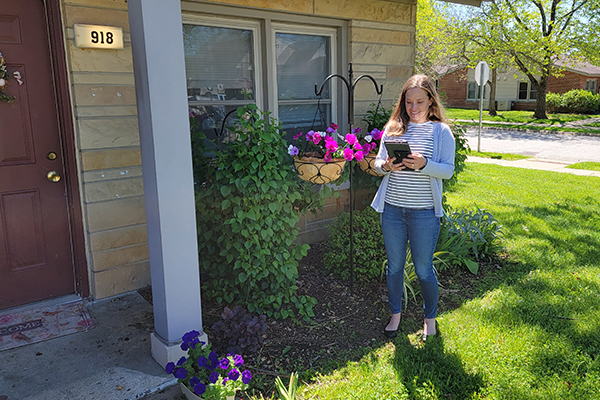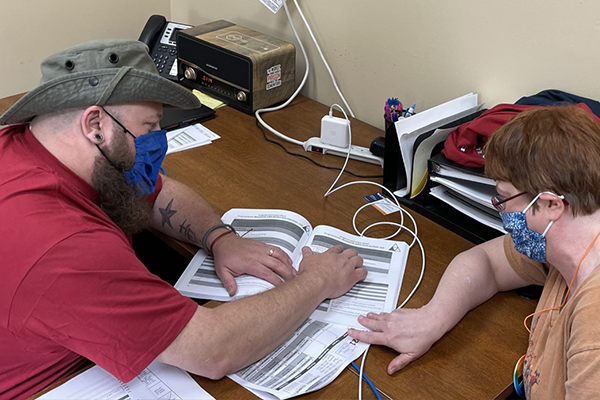United Way of Monroe County and the Community Foundation, along with officials from the City of Bloomington and the Monroe County Government, announced November 10 a formal partnership including more than $5 million in funding proposed to support the “Heading Home 2021: A Regional Plan for Making Homelessness Rare, Brief, and Non-Repeating.”
The Heading Home Plan, developed by regional partners, including service providers, government officials, community members, funders, and people with lived experience, serves as a local guide to support long-term initiatives in reducing and eliminating regional housing insecurity and homelessness.
The funding announcement from the City of Bloomington and Monroe County Government will enable community partners to launch and sustain long-term solutions for the region. The City of Bloomington will provide $1.2 million in funding to support the Heading Home Plan as part of Mayor John Hamilton’s Recover Forward initiative, plus an additional $1.5 million in 2022. The Monroe County Government announced plans to contribute $1.2 million, plus an additional $1.2 million in endowment funding to sustain the work for the long-term.
Additionally, Bloomington Township has approved $15,000 for their next budget year.
The Heading Home 2021 Plan:
During the past year, a working group of stakeholders was convened by United Way and the Community Foundation, with support from the South Central Housing Network, City of Bloomington, Monroe County Government, and the townships of Perry and Bloomington. Building on the collaborative relief work during the pandemic, this group worked to update the community’s action plan, with committees diving deep into research and recommendations.
“One of the few silver linings of the pandemic was how it brought us together as a community. We came together to respond to the immediate and ongoing needs posed by COVID, working across sectors to assure that in our community, people’s basic needs of food, shelter, health and safety, child care, and more were being met despite unprecedented challenges,” Efrat Feferman, United Way of Monroe County Executive Director reflected. “And while we continue to address these emergency needs, the pandemic has also allowed us to direct federal and local funds towards assuring that fewer people live in that state of crisis, and move into or remain in stable, safe homes. This is a life-changing opportunity that can alter the long-term health of our community.”
Building upon the work of the 2014 Heading Home plan, the working group identified goals, strategies, and objectives to increase housing security by preventing homelessness in the first place, ensuring that if homelessness occurs it has a short tenure, and that it does not occur again.
The Heading Home 2021 plan addresses the many contributing factors to housing insecurity which range from financial and legal issues to emotional, physical, and mental health related matters. It also speaks to system-level issues related to access to a variety of housing types. Additionally, it looks at process issues that can be improved upon to eliminate barriers to housing or to expedite access.
Most importantly, the housing plan is grounded in the concept of Housing First, an approach to quickly and successfully connecting families and individuals to permanent housing without preconditions and barriers. It’s a significant advancement to previous approaches that required individuals to demonstrate readiness for housing first.
“The strategy that has been defined in the Heading Home plan is bold, different, and holistic. To ensure it is implemented with fidelity and becomes more than an admirable exercise in community collaboration, the community must invest resources into its implementation,” said Tina Peterson, Community Foundation of Bloomington and Monroe County President and CEO. “Today, we are excited to announce a shared commitment from the public sector, private sector, and nonprofit sector, to not only acknowledge the need for a fully ideated long-term plan to increase housing security, but also the willingness of these partners to commit the resources necessary to ensure that we can activate and sustain that plan.”
To read the Heading Home 2021 plan visit www.monroeunitedway.org/housing
Current Landscape and Funding Commitments:
Monroe County is not unlike many communities across the country facing a housing crunch. There is a national affordable housing crisis that has only been exacerbated by the pandemic over the last 20 months. In Bloomington, 60% of renters and 30% of homeowners spend more than 30% of their income on housing, according to the 2020 Housing Study commissioned by the City of Bloomington.
“That is the definition of being “cost-burdened” by housing costs. It means there’s that much less left for other needs, let alone wants, savings, or money circulating in the economy. In other words, the impact ripples beyond the individual across the whole community,” shared City of Bloomington Deputy Mayor Donald Griffin, Jr.
Griffin continued, “Through our Recover Forward plan, the City is today dedicating $1.2 million to this transformative work led by United Way and the Community Foundation. The Recover Forward initiative aims to rebuild from the pandemic with a view toward greater environmental, racial, and economic justice. Additional recent investments in housing include down payment assistance, investing in the BHA’s new Summit Hill Development, and designating a Landlord Risk Mitigation Fund. Together with all of the community forces gathered here, I believe we can work to make homelessness and housing insecurity rare, brief, and non-repeating.”
“We see people without homes throughout our community and they’re visible to us. But people struggle every day with shelter. They may occasionally reside in an overnight shelter, they may live in a vehicle, they may couch surf. This is an urban and rural issue. It involves individuals and families, it involves children and the elderly, and those facing physical and mental challenges. It is an issue that deserves a community response. And the solutions must be reflective of dignity and respect,” commented Julie Thomas, Monroe County Commissioner President.
Thomas continued, “Because this is not an isolated issue, the Monroe County Board of Commissioners and the Monroe County Council have pledged American Rescue Plan Act dollars totaling $1.2 million to support the initiation, planning, and implantation of the Heading Home 2021 plan. And we have committed $1.2 million in additional dollars to fund an endowment to start the seed growing to ensure the long-term sustainability of this fund.”
“This is a great example of City and County leaders joining together to put real solutions into place to solve difficult challenges within our community,” shared Eric Spoonmore, Monroe County Council President. “The Heading Home initiative proves once again how Monroe County residents step up to address real human concerns for the greater good and lift up our community. The reason this initiative has been so successful is the collaborative way in which United Way and the Community Foundation engaged with so many service providers and agencies and invited all voices to the table.”
Next Steps:
The immediate next steps supported by this funding include:
- Hire a small team of professionals dedicated to executing the long-term regional strategies in the Heading Home Plan.
- Build an active cross-sector coalition to develop and coordinate strategies.
- Create a coordinated, live data set for monitoring progress on homelessness and housing insecurity, including a dashboard accessible to the public.
- Partner with local agencies to expand rapid rehousing beyond Monroe County, forging new relationships in surrounding counties.
- Work with landlords and service providers throughout south-central Indiana to house people, providing the needed support. Additionally provide incentives to house the most vulnerable community members through a risk mitigation fund.
- Encourage the development of a range of housing options.
Get Involved:
Making homelessness and housing insecurity rare, brief, and non-repeating requires the whole community coming together. For those interested in connecting with this work, an interest form is available at monroeunitedway.org/housing. Whether someone is interested in volunteering for a committee, being an advocate for housing, or working with local nonprofits to lease vacant rentals to fellow community members trying to get back on their feet, those interested are encouraged to fill out the interest form.
To read the Heading Home 2021 plan visit www.monroeunitedway.org/housing
About Monroe County of United Way: United Way of Monroe County’s is a nonprofit organization that improves the lives and futures of all people in the community. We bring together expertise, funding and volunteer support to positively impact the resilience of our community, and those who live within it. In partnership with others, we work to eliminate inequities experienced by low-income and diverse populations so that all people have a safe, healthy home environment, achieve their educational potential, and increase their financial stability. We commit to building bridges across cultural, racial, religious, and economic boundaries. More info www.monroeunitedway.org.
About the Community Foundation of Bloomington and Monroe County: Created by individuals, families, and businesses who share a passion for Monroe County and a vision for its future, the Community Foundation of Bloomington and Monroe County has granted more than $27 million since its incorporation in 1990. With a growing $44 million endowment, the Foundation makes a difference by connecting caring people, important causes, and community resources. Learn more at www.cfbmc.org.

